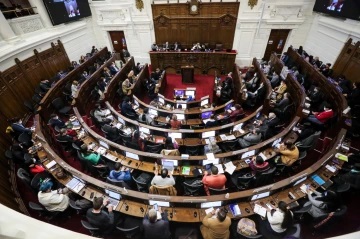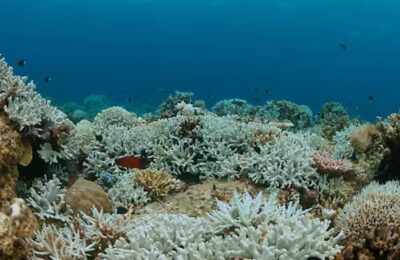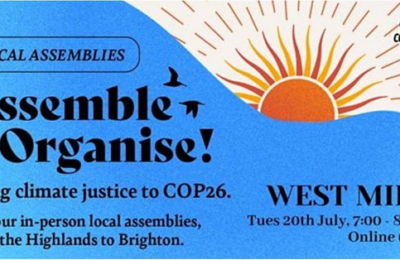By Pablo Solón
[Español – Português] A little over two years have passed since my last visit to Chile. At the end of 2019, Plaza Baquedano, which at that time was renamed Plaza de la Dignidad, was full of youth, indignation, tear gas, blood and hope.

Now I feel that the spirit and hope have been transferred to the new government of Gabriel Boric and to the Constitutional Convention that had been installed as a result of those protests that stood their ground and did not succumb to severe repression.
The situation seems calmer but the tension has not disappeared. I turn on the television and channel after channel, I only find news that attempt to discredit the Constituent Assembly. I find very little in the mass media about the substantive discussions happening in the Assembly. A clear example of which was the debate on the inclusion of the Rights of Nature in the new constitution, an issue that the media says very little about.
I arrived in Santiago de Chile with an international delegation comprised of Alberto Acosta who led the Ecuadorean Constituent Assembly, Natalia Green the coordinator of the Global Alliance for the Rights of Nature (GARN), Elizabeth Bravo an activist from Ecuador, Enrique Viale an intellectual and campaigner for the Rights of Nature from Argentina and myself, a staunch advocate for the Rights of Nature, from Bolivia, with the aim of learning and sharing our experiences on the Rights of Nature, or as we also call it in Bolivia the Rights of Mother Earth.
Several things called my attention: the participatory nature of the constituent process that is laid clearly transparent on the site https://www.chileconvencion.cl/, and the creation of one of the ten commissions that bears the name the Commission on Environment, Rights of Nature, Common Goods of Nature and Economic Model. It is the first time that I have seen that the economy is placed where it should be in a constitutional debate: as a subsystem that depends on nature, and not as a construction that can exist outside of and at the expense of nature. Such amazing progress, with such audacity, and how difficult the challenges are going to be for the constituents who want a profound change and not just some reforms!

María Elisa Quinteros, the new president of the Constitutional Convention installed at the beginning of this year, welcomes us with eyes full of optimism and concern. The youth of the vast majority of constituents with whom we meet is deeply moving. I have no doubt that Chile has hope.
The exchanges and questions put to us by various constituents, technical staff, and activists from social movements are very interesting and advance my own reflections on the Rights of Nature. The question that several journalists repeatedly asks: How are the Rights of Nature going to affect the rights of private property? That is the enormous concern of big Chilean capital that controls an absolute majority of the mass media. Every right ends where the rights of another begin. I have the right to listen to the music I want, but I can’t listen to it at full volume at 2 in the morning because it affects my neighbors’ right to sleep. Rights, including property rights, are never absolute. If I don’t contaminate the river and the land, I don’t have to worry, but if my property or economic enterprise is going to dry up a river and affect the fish, animals, biodiversity and human communities that live on that river, then obviously we have to put limits on said proprietary right. In other words, property rights that affect the well-being of nature and people always have to be regulated, limited, and in some cases reversed. Failure to do so is suicidal for everyone, including those businessmen concerned about their property.
Why don’t the vast majority of human beings listen to loud music at 2 in the morning? Because our neighbors can report you to the police and even sue you through the legal system. Our neighbors have rights and can take legal actions or other kinds of measures when our actions impinge on their rights.
If a company pollutes or dries up an entire lagoon, what actions can that water source take if it is just an object, a thing, a resource to be exploited? At best, the owner will compensate the inhabitants affected by the contamination or destruction of the river, but he will not give that body of water a second thought, treating its death as a negligible occurrence.
Now, if nature is seen in the lens of rights, the situation changes radically. That river, that lagoon, can take the polluter to the competent authorities and courts to take measures to stop and repair the damage. Any citizen or community must be able to speak for that river or lake that is dying, just as any member of society can and should intercede in defense of a vulnerable or helpless person who is being mistreated. The argument that the river cannot have rights because it cannot defend itself in court collapses when we see how in our legislation, children, the elderly and the disabled have rights even though they cannot exercise them on their own. In addition to this, there is the Ombudsman’s Office and the creation of the Ombudsman for Nature that the Chilean constituency is discussing.
The Rights of Nature goes far beyond the protection of nature because they tell us that we cannot treat non-human beings as simple objects, things and resources to be exploited at will. At this moment, the question that the interviewer asks is, so you can’t cut down a tree, extract minerals or use water from a river? The Rights of Nature do not promote an untouchable nature. In nature, there are cycles of interrelation that impact different species. The problem is when a specie, the human and in particular the owners of large properties and enterprises, begin to impact nature’s capacity for regeneration. Catching some fish is not a violation of the Rights of Nature, but intensive fishing that kills all the fish, corals and aquaculture, effectively destroying their ability to regenerate is a violation of the rights of all those fish and the ecosystem in that river. The Rights of Nature forces us to think in terms of the non-human from a broader view of systemic interrelations and not just a narrow perspective of humans need not care for the non-human.
Why are the Rights of Nature now emerging with such force and beginning to be recognized in national and local regulations in several countries? Because our planet, our ecosystems and our climate are collapsing due to total disrespect for the vital cycles of nature. As humanity, we are facing the sixth extinction of life on Earth and the humans who have and continue to treat nature as nothing but a resource to be exploited without a care to its delicate balance and ability to regenerate and not respecting the vital cycles of our living planet, are the ones who are responsible for this sixth extinction of life on Earth.
The heart of the Rights of Nature is to pursue a biocentric balance, centered on the Whole and not only on human beings. What is being sought is to recover the balance broken by the vortex of unlimited growth on a finite planet in which a few consider that they have absolute property rights over an inert nature and hence see it merely as a source of wealth. In nature, nothing grows forever, all processes tend towards a dynamic equilibrium. Human beings must overcome our anthropocentric gaze that has worsened with modernity and that makes us forget that we are part of nature.
As I prepare to leave, I cannot hide my smile of hope: Chile, the most neoliberal country in South America, is having one of the most difficult and decisive debates not only for Chile, but for all humanity and nature on planet Earth.
Wednesday March 16 2022. I have just received an article from the Chilean newspaper La Tercera about the debate on the Rights of Nature. The article cites a constituent opposed to the Rights of Nature who argues “Imagine this case that is real: Humboldt penguins are threatened by another species. A plague of hares. They are both nature. There may be those who, in the name of nature, defend some, and others the other. Who is nature?” I can’t believe it…, according to this argument, the rights of nature are not viable because society would supposedly be divided between defenders of penguins versus hares. In nature, there are multiple cycles of predators and prey. It is absurd to insinuate that the Rights of Nature imply taking sides in favor of any of them. Currently, the vast majority of plagues and imbalances between species are due to human activities, for example, the gigantic plastic islands that severely affect marine flora and fauna and even human populations. In nature, there are always cycles of life and death and these make up the delicate balance and equilibrium on the planet. The problem is when the logic of consumption and profit alters these cycles, massively exterminating species and causing plagues and unnatural phenomena never seen before. The Rights of Nature does not state that there can be no human intervention on nature and on these plagues, but it emphasizes the need to uncover the origins of these profound imbalances, and promotes processes to restore balance and recover the vital cycles of nature and to not resort to dangerous technologies that can cause even more catastrophic events.
I was smiling but at the same time worried about the degree of misinformation that exists in the big media outlets. Just then another message arrives in my cell phone: The Constitutional Convention of Chile has just approved in large and in detail the following article that will be included in the principles section of the new constitutional text:
Article 9.- Nature. Persons and peoples are interdependent with nature and form, with it, an inseparable whole.
Nature has rights. The State and society have the duty to protect and respect them.
The State must adopt an ecologically responsible administration and promote environmental and scientific education through permanent training and learning processes.
Now we have to see how the drafting and approval of the other articles that develop this article evolves and then see the results of the referendum that will be called to approve the new text of the Chilean Constitution. The road is long and complex, but this step is historic!




